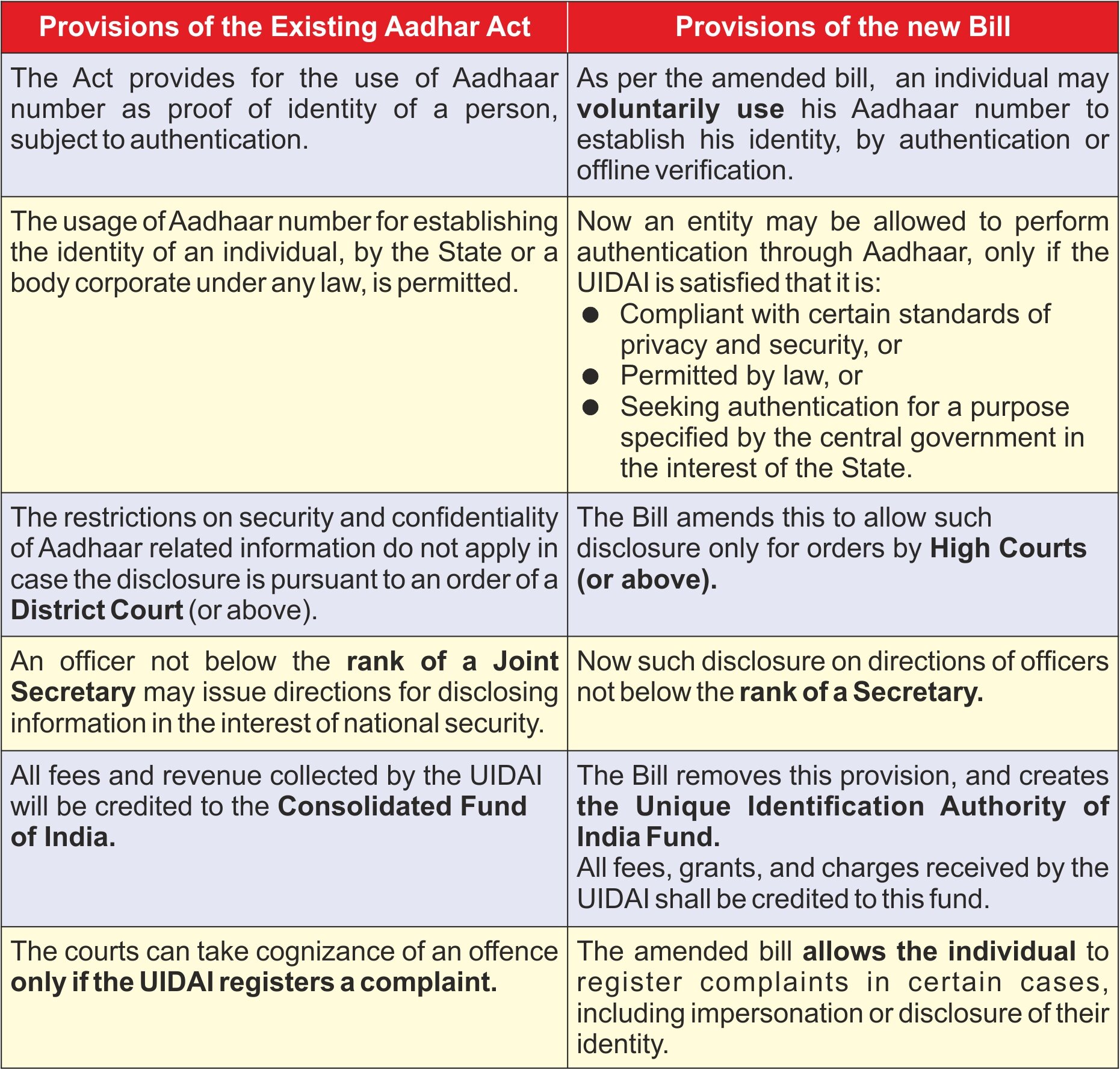Aadhar and its Voluntary Use | 09 Jul 2019
Recently the Parliament has passed the Aadhaar and Other Laws (Amendment) Bill, 2019 which allows voluntary use of Aadhaar as proof of identity.
- The existing Aadhar act provides for the use of Aadhaar number as proof of identity of a person, subject to authentication.
- The Bill replaces this provision to state that an individual may voluntarily use his Aadhaar number to establish his identity, by authentication or offline verification.
- The Bill states that authentication of an individual’s identity via Aadhaar, for the provision of any service, may be made mandatory only by a law of Parliament.
Salient Features of the Bill
- Also, under the Bill, the UIDAI may initiate a complaint against an entity in the Aadhaar ecosystem for failure to
- comply with the Act or the UIDAI’s directions, and
- furnish information required by the UIDAI.
- Adjudicating Officers appointed by the UIDAI shall decide such matters and may impose penalties up to one crore rupees on such entities.
- The Telecom Disputes Settlement and Appellate Tribunal shall be the appellate authority against decisions of the Adjudicating Officer.
Unique Identification Authority of India
- The Unique Identification Authority of India (UIDAI) is a statutory authority established on 12 July 2016 by the Government of India under the jurisdiction of the Ministry of Electronics and Information Technology, following the provisions of the Aadhaar Act 2016.
- The UIDAI is mandated to assign a 12-digit unique identification (UID) number (Aadhaar) to all the residents of India.
- The UIDAI was initially set up by the Government of India in January 2009, as an attached office under the aegis of the Planning Commission
However, the opposition questioned the government’s “intentions” on clearing the bill without first bringing in law for data protection. But the Government replied that :
- Data sovereignty is important to us and it will not be compromised. The legislation on data protection is a “work in progress” and the government would bring in a comprehensive law after further consultations with the stakeholders.
- India in future will become the centre of data refinery and the government is taking due precautions in constructing the data protection law because the world is looking at India to take the lead on the issue.

